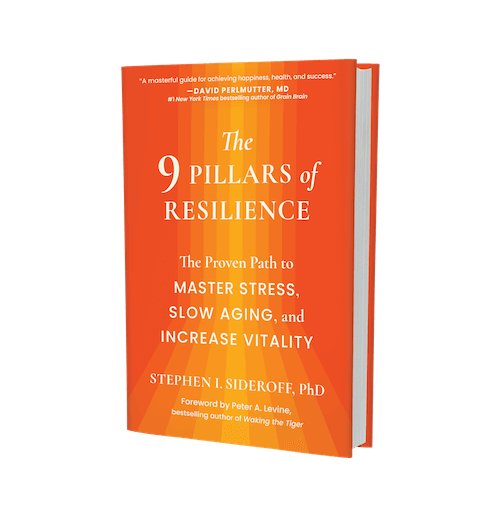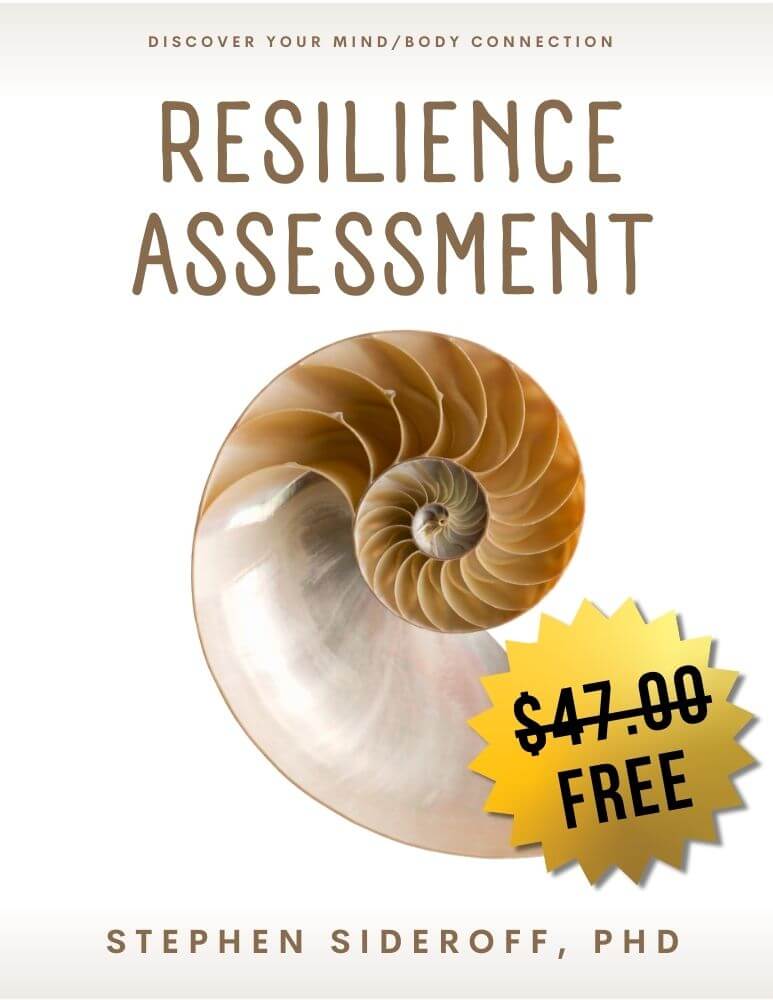A Personal Perspective: I felt hooked on sugar. Here’s what I did about it.
Around 40 years ago, a friend gave me a book entitled Sugar Blues, which was about the dangers of sugar. I didn’t want to hear it. I think I read about three pages. and pushed the reality of sugar out of my awareness.
After all, I loved the taste, and I grew up with sugar and cakes playing a big role in my life. After school, the five-cent candy bar was a ritual. At home, cookies were considered a treat for being good, or just because it was a rainy day. It seemed like my family, friends and I would top everything off with something sweet—like those cinnamon buns with loads of icing on the top.
I spent my summers with my sister and cousins on my grandparents’ farm. Once a week, Dugan’s bakery van made a stop at our farmhouse. The special was a box conveniently fitted with six cupcakes: two vanilla, two chocolate, and two strawberry. We would hear the truck and rush to the driveway, ready for the handout. It was paradise. Sugar was always associated with moments of pleasure.
And there are many reasons why. There is considerable evidence that sugar activates powerful reward mechanisms in the brain (1,2) and that it actually can trigger a dopamine rush (3). It’s also frequently used as comfort when someone is sad or stressed, creating a positive association.
Since focusing my work on resilience and more recently longevity, and partnering with my friend Rob Lufkin, a physician, I have faced full-on the reality of sugar. I already had a warning signal with a calcium score that, while considered “normal” for my age, was too high for me. In a recent summit and interviews with the leaders in the field, Mark Hyman, Dale Bredesen, and Peter Diamandis, among others, highlighted the damage that sugar can cause. Peter even went so far as to call it “poison.”
Hooked on Sugar
For the last year, I have been trying to cut down. But as I examined my cravings I finally had to admit: I was hooked on sugar.
The evidence was clear: I was continuing a behavior that was harming me. This goes against my basic, foundational life intention: developing the healthiest way of living my life. I had to do more than the amount of cutting down I was doing. I felt that there were similarities to drug addiction in my behavior; I had fooled myself, avoided, and otherwise distracted myself from the harm I was doing to my body. I was sacrificing long-term health for short-term enjoyment.
A week ago, I made the decision to cut out sugar. I would still eat fruit, and I was still having an occasional slice of toast (which, as Rob reminds me, turns into sugar in the body). But I was no longer eating cookies or desserts.
I had already removed processed foods from my diet. But when I looked closely at all the foods that contain sugar, it made my head spin.
Starting Small
I started my plan 10 days ago. It began with the decision: No sugar for 30 days.
Thinking about “forever” makes any change in behavior difficult. How can I stay away from sugar for the rest of my life? How can I go without key lime pie and other favorites that have been conditioned to be associated with pleasure? By reframing the goal into a doable 30 days, then, I was increasing my chances of success and by doing this, staying committed and motivated to achieve it.
The Ongoing Struggle: Progress Report
It was easy for about three days. Then the cravings began.
They occurred at the many times I would typically have a cookie or dessert: after a meal, or in the middle of the afternoon to assuage a hunger pang. Then there were all the conditioned stimuli that would trigger my craving: passing the cake and bakery sections at the supermarket, or when a friend or relative was having a birthday (love some of those birthday cakes). And, of course, the ever-present sweet commercials on TV.
Cognitive and Behavioral Strategies
My strategies for success included steering myself away from the cookie aisle at the supermarket (I love Pepperidge Farms’ double chocolate!). If they are in the house, I know I would not be able to resist. Every time I left the supermarket without cookies, I considered it a victory. The problem, of course, is that all the victories in the world don’t balance out one slip—as I would then have 15 cookies in the house, making me vulnerable to numerous slips.
My first cognitive strategy was to consider myself a warrior fending off the “demons” of the “sugar monster.” Remembering Peter Diamandis saying he labels sugar as a “poison” led me to use a similar strategy; from there, I could work to fend off the “monster.” I took great solace each time I won this battle.
Another strategy was to mentally “time travel” to just after the pleasure of a cake or other sweet wore off and imagine how I would then feel—all I would be left with is the damage of the sugar. The pleasure would no longer be relevant.
These strategies had some success, but I noticed, as time went by (which seemed like an eternity) there was this build-up of energy pushing me toward my fall. It would be accompanied by numerous rationalizations: “Well, look how good I’ve been doing. Don’t I deserve a reward?”
And I did, in the form of a pint of this great blackberry chocolate chip ice cream. Even though it took almost a week for me to finish it, I broke my commitment to myself and my 30-day sugar-free plan.
Recovery and Recommitment
How did I recover after this slip? First, let me confess: I’ve had two additional slips, now that I’m on my 14th day. The goal is to handle the slips in a way that makes future slips less likely. Here’s how I handled them, and is also my suggestion for all of you who would also like to break a bad habit and get onto the path of optimal health:
1. Acknowledge my upset with myself and allow the expression of accompanying feelings.
Integrity is very important to me. This means doing what I say I will do, following through, and holding myself accountable. I have found this to be at the heart of trusting myself and having self-confidence, and thus expecting big things in my life.
Now, breaking my commitment has made me angry with myself. The first step is to express this anger.
The key to expressing anger toward yourself is to make sure you don’t go overboard. This means no self-abuse, no catastrophizing, no name-calling, and no generalizing. I stayed focused on the specific behavior (rather than implying any overall message that I’m bad or incompetent) and I wasn’t abusive.
I realized that ultimately, I want to treat myself from a place of acceptance and love. I know that my relationship with myself (my resilience pillar #1) will support my happiness and give me the ability to overcome my dependency. Expressions of anger should be accompanied by acceptance. This doesn’t mean I like my slip-up; I’m simply acknowledging that the behavior is in the past and can’t be changed. Acceptance helps with the letting go process.
2. Have compassion toward myself.
Next, I recognized the difficult challenge that lay before me: fundamentally changing my lifelong relationship with sugar. I have compassion toward myself for the harmful behavior that I sometimes engage in and the struggle to overcome it. It’s not going to be easy, but it must be done. I remember Ram Dass once saying that compassion was the antidote to anger.
3. Forgive myself.
Forgiveness has two parts: 1) Finding a lesson to be learned that balances out the cost of the mistake, and 2) Loving myself enough to let go of the mistake.
I first found the lesson: Be on the lookout for the rationalizations that give me a “hall pass,” and preempt them. Then, say to myself, “I love myself and want the best for me.” Right now, as I continue to achieve my goal, it’s best to let go of any resentment or past mistake.
4. Recommit myself.
Remind myself why I’m taking this challenge: for better health and longevity, as well as greater self-confidence. The first reason is to avoid the damage that sugar causes to my body and mind and the second reason is to further develop my “high will.” I must reach deeper inside to stand up to the ongoing cravings for sugar. Every time I take and complete this difficult challenge, I strengthen my will and my mental and emotional strength.
5. Support this commitment.
I created a few affirmations that I read every morning, throughout the day, and when I go to sleep: “I am able to go through my day without eating foods containing sugar” and “Whenever I have a sugar craving, I use one of my tools to conquer it.”
I’d love to hear from all of you in your attempts to break old habits that don’t support you and begin establishing new and healthy habits. I will continue to share my progress. You can reach me through my website, www.DrStephenSideroff.com
References
Ahmed SH, Guillem K, Vandaele Y. Sugar addiction: pushing the drug-sugar analogy to the limit. Curr Opin Clin Nutr Metab Care. 2013 Jul;16(4):434-9. doi: 10.1097/MCO.0b013e328361c8b8. PMID: 23719144.
Avena, N. M., Rada, P., & Hoebel, B. G. (2008). Evidence for sugar addiction: behavioral and neurochemical effects of intermittent, excessive sugar intake. Neuroscience and biobehavioral reviews, 32(1), 20–39. https://doi.org/10.1016/j.neubiorev.2007.04.019
Lenoir, M., Serre, F., Cantin, L., & Ahmed, S. H. (2007). Intense sweetness surpasses cocaine reward. PloS one, 2(8), e698. https://doi.org/10.1371/journal.pone.0000698

